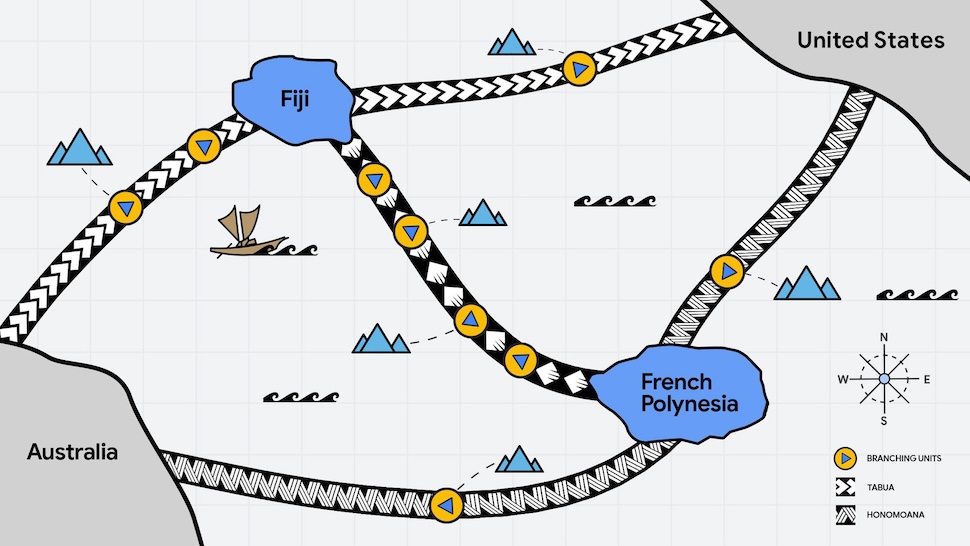Google is building a subsea cable linking the US to Australia

Google Cloud has announced plans for new undersea cables connecting the US, Australia and other island nations in between.
Announced in collaboration with the Australian government, the South Pacific Connect initiative will see the tech giant and the Australian government collaborate with partners such as Fiji International Telecommunications, Office of Posts and Telecommunications of French Polynesia, APTelecom and Vocus Group.
The U.S. government has committed to spending up to $15 million in multiple phases, starting with a $5 million investment. Australia will finance the majority of the project and provide $50 million to cover the rest of the bill.
A submarine cable between the US and Australia is planned, connecting the islands in between
The connection is set to two lines. Tabua, named after the tooth of a sacred whale from Fiji, will connect the countries via Fiji. Honomoana, a Polynesian compound word consisting of ‘link’ and ‘ocean’, will extend a second line through French Polynesia.
A series of branch points have also been strategically placed along the cable routes to expand connections to other Pacific islands. The ocean and its landmasses are susceptible to events, such as natural disasters, that have previously affected communications. The hope is that the South Pacific Connect Initiative will improve low-latency connections between the islands and beyond.
A separate White House fact sheet highlights plans to expand connections to the Federated States of Micronesia, Kiribati, the Marshall Islands, Nauru, Papua New Guinea, the Solomon Islands, East Timor, Tuvalu and Vanuatu.
Google notes that undersea connections can improve the affordability and reliability of the internet, and it is hoped that improved connections will lead to economic development in all states and countries involved in the project.
The announcement coincides with Australian Prime Minister Anthony Albanese’s visit to the US, where rival company Microsoft also committed to spending $5 billion in the country to improve its cloud computing and AI landscape, creating jobs and employees were further trained.
